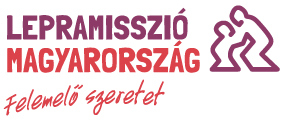In 2016, we undertook two projects in two countries:
In India, we have been supporting the Shahdara leprosy hospital near Delhi and the Premananda leprosy hospital in Calcutta for several years, and in southern China we have been involved in leprosy rehabilitation work in the Xishuangbanna area of Jinnan province for 5 years.
The same activities are taking place at Shahdara Hospital, as described in the General Help section of our Help section. Comprehensive curative, rehabilitative and area care work is carried out at the hospital. The hospital is supported by several other member countries (Scotland, England and Wales, Australia) to a much greater extent than ours. We, the Hungarian Lepramissiio, contribute to the hospital's operation to the best of our ability.
"In Calcutta, 300 eye surgeries were provided by donations from our supporters. These were performed on patients, mostly men and women with former leprosy, who would never have had access to the surgery either because of poverty or distance from home. But they were able to regain their sight, and the blessings of this restored sight will continue to impact the present and future of their families! Thank you!"





Because India is a priority for all donor countries, we give a small part of our annual aid to India so that we can invest more in the project we support alone. Although leprosy is not as pressing an issue in China as it is in India, for example, the isolation of leprosy patients, the vastness of the area and the stigma make it very important to be present and help. Our project is therefore particularly concerned with the rehabilitation of the whole lives of individuals and families who are disadvantaged by leprosy, in addition to the treatment that is naturally provided.It is of great importance that we help to bring the inhabitants of the isolated "rehabilitation villages" to full human dignity. Therefore, legal protection, physiotherapy, provision of artificial limbs, a home and clean drinking water are as much a part of the project as the schooling of children who have been disadvantaged by their own, their parents' or their grandparents' leprosy. Without us, they would not learn to read and write, but would have to live with a hopeless fate - innocent! And later they would have no profession at all if we had not sent them to vocational training, where we would have provided them with boarding accommodation.
They and 30 of their peers have already been enrolled!

